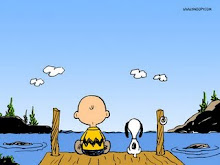Conspirator

- Brian
- I went out there in search of experience To taste and to touch and to feel as much As a man can before he repents.
 This young lass to the left is Tsehai, a giraffe who is the focal point of the Amharic-language program Tsehai Loves Learning. We have a DVD--it has English subtitles--of which I try to watch a little each day with the Queen Bee. She really likes the songs, but overall, I'd say I'm more into the program than she is. I'm a little fascinated, I guess, to see the differences and similarities between the children's educational programming in the States and in Ethiopia. One thing I really like about Tsehai Loves Learning is that the lessons are really about how we treat other people, as opposed to colors, numbers or letters. For example, here are the titles of the episodes on the DVD we own (click here to watch short previews of each episode): Truthfulness, Patience, Caring, Kindness, Love. Perhaps it's stereotypical, but I wonder if the reason isn't because Africa tends to be more community oriented (i.e., more tribal) whereas the U.S. tends to be more individual?
This young lass to the left is Tsehai, a giraffe who is the focal point of the Amharic-language program Tsehai Loves Learning. We have a DVD--it has English subtitles--of which I try to watch a little each day with the Queen Bee. She really likes the songs, but overall, I'd say I'm more into the program than she is. I'm a little fascinated, I guess, to see the differences and similarities between the children's educational programming in the States and in Ethiopia. One thing I really like about Tsehai Loves Learning is that the lessons are really about how we treat other people, as opposed to colors, numbers or letters. For example, here are the titles of the episodes on the DVD we own (click here to watch short previews of each episode): Truthfulness, Patience, Caring, Kindness, Love. Perhaps it's stereotypical, but I wonder if the reason isn't because Africa tends to be more community oriented (i.e., more tribal) whereas the U.S. tends to be more individual?